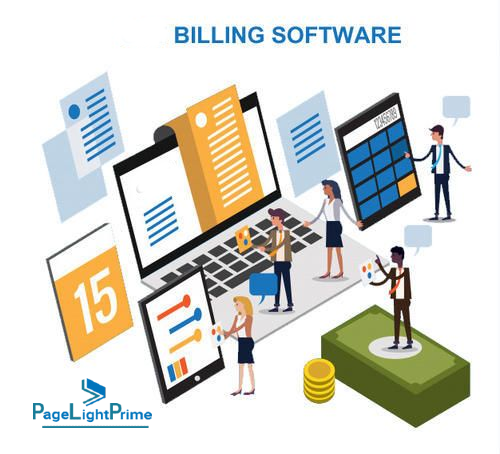Law Firm Billing: Strategies and Guidelines for Success
In the realm of legal services, billing transcends mere invoicing; it’s an integral facet of a thriving law firm. Effective billing practices not only ensure a steady cash flow but also contribute to client satisfaction and the overall reputation of the firm.
Written by Knowledge Team, posted on August 30, 2023

Whether you’re an experienced attorney or a recent law school graduate venturing into the world of practice, acquiring proficiency in law firm billing is paramount. In this comprehensive guide, we’ll delve into optimal billing practices to streamline your procedures and cultivate a sound financial ecosystem.
Mastering efficient billing practices acts as a compass, guiding law firms towards financial prowess and client satisfaction. With a well-structured approach to billing, firms can ensure steady cash flow, foster transparent communication, and enhance their reputation.
Grasping Your Billing Structure
Before delving into the intricacies of billing, it’s imperative to comprehend your firm’s billing structure. Law firms typically employ diverse billing methods, encompassing hourly billing, flat fees, contingency fees, and retainer fees. Each approach has its merits and demerits, and understanding which aligns with your firm’s services and client base is pivotal.

Cultivating Transparent Communication
Open and candid communication about billing serves as the cornerstone of a successful client relationship. From the initial consultation onward, expound on your billing methods, rates, and expectations. Transparency not only prevents future misunderstandings but also fosters trust with your clients.
Precision in Timekeeping
In the case of hourly billing, precision in timekeeping is non-negotiable. Employ legal practice management software to meticulously track time allocated to each task or case. Remember that billable hours encompass more than court appearances; they encompass research, client meetings, and administrative tasks.
Meticulous Invoices
An invoice should offer a lucid breakdown of rendered services, expended hours, and incurred expenses. Utilize itemized invoices to showcase the value you’ve delivered to your clients. Furthermore, incorporate succinct descriptions of each task to facilitate clients’ comprehension of the work accomplished.
Setting Attainable Deadlines
Meeting deadlines is pivotal not only in legal work but also in billing. Establish realistic expectations for invoice issuance and payment due dates. Consistent billing aids clients in effectively managing their finances.
Enforcing Billing Policies
Institute unambiguous billing policies, encompassing payment terms, late fees, and accepted payment modes. Ensure that clients are well acquainted with these policies from the outset to prevent any payment-related conflicts.
Prudent Utilization of Technology
Legal billing software can prove transformative for law firms. These tools offer features such as time tracking, invoicing templates, expense management, and integration with legal accounting software. Investing in technology streamlines billing processes and mitigates the risk of human errors.
Periodic Review and Adaptation
Billing practices are not etched in stone. Regularly assess your billing protocols and gauge their efficacy. An upsurge in invoice disputes or delayed payments might necessitate a reevaluation of strategies and requisite modifications.
Nurturing Client Retainers
For ongoing legal undertakings, consider implementing retainer agreements. Retainers furnish clients with a sense of security and ensure a consistent income stream for the firm. Clearly outline how the retainer will be utilized and replenished as needed.
Educating Your Team
Billing transcends the purview of the accounting department; it concerns the entire firm. Assure that all attorneys and support staff are well-acquainted with billing procedures and the significance of accurate time tracking. A harmonious team endeavor facilitates efficient billing practices.
Managing Client Expectations
Clients value clarity concerning billing. If potential additional costs or shifts in scope arise, promptly communicate these changes. This proactive approach nurtures trust and precludes unwelcome surprises.
Extending Payment Flexibility
In certain scenarios, clients might grapple with financial constraints hindering upfront payment. Offering flexible payment plans facilitates clients’ financial obligations while still affording them legal support.
Ethical Considerations
It’s vital to emphasize the importance of adhering to ethical guidelines when it comes to billing practices. Highlight the potential consequences of unethical billing practices and how they can damage the firm’s reputation and legal standing.
Client Education on Invoicing
Offer guidance on how to help clients understand the invoices they receive. Explain legal terminology, billing codes, and any industry-specific details to improve client comprehension.
Client Portals
Discuss the benefits of having a client portal where clients can access their invoices, payment history, and case updates. This enhances transparency and provides a convenient way for clients to manage their legal matters.
Client Feedback on Billing
Encourage law firms to seek feedback from clients regarding their billing experience. This can provide insights into areas for improvement and demonstrate the firm’s commitment to client satisfaction.
Demystifying the Law Firm Billing Process
The journey of law firm billing typically traverses these stages:

- Onboarding clients and initializing their cases.
- Logging billable time and disbursing fees/expenses throughout the case.
- Consolidating client and case bills and expenses into draft bills monthly or at case culmination.
- Attorneys review, annotating, and endorsing draft bills.
- Generating the final bill version and transmitting it to clients for payment.
- Clients remitting payments via accepted modes.
- The accounting team issuing reminders for overdue payments.
This seemingly straightforward process is vulnerable to bottlenecks and inefficiencies. Delays can arise due to attorneys taking an extended duration to approve bills or excessive edits, impeding timely billing.
Crafting Your Law Firm’s Billing Policy
To preserve precious time and resources, a clear and standardized billing policy is indispensable. This policy functions as a reference point for attorneys and staff, ensuring cohesion within the firm.

When crafting your billing policy, consider these steps:
- Provide staff with a template and guidelines, encompassing:
- a.) The timing for invoice dispatch.
- b.) Ideal length for legal billing descriptions.
- c.) Distinction between includable and write-off expenses.
- d.) Inclusion of pertinent introductory communications on invoices if needed.
- Investing upfront in a transparent and user-friendly billing and expense process yields considerable time savings down the line.
Mapping Your Law Firm’s Billing Journey
Immerse yourself in the life cycle of your invoices. Anticipate answering pivotal queries about your billing process:

- Which attorneys on a case need to review a bill?
- In what sequence should reviews be conducted?
- Are bills transmitted through mail or electronically?
- Whom should you alert upon sending out a bill?
Document the entire process, leaving no room for ambiguity. This clarity not only bolsters your financial bottom line but also deepens your understanding of clients, thus enriching the client-centered experience.
Enforcing Invoice Review Mandates
Encourage attorneys to utilize dedicated systems, such as legal practice management software for electronic reviews. This expedites the process and curtails potential errors; you might even contemplate introducing automation software. For further guidance, delve into our blog post on optimizing the law firm invoice process.
Integration of Finance in the Billing Workflow
Assure you that your accounting, or finance team is kept in the loop regarding bill issuance, outstanding collections, and potential write-offs. Effective communication forestalls confusion and accelerates the payment cycle.
Embedding a Uniform Approach for Disputes and Collections
Refrain from allowing unpaid bills to accumulate over extended periods. Timeliness is the crux: Procrastination diminishes the chances of clients settling their debts. Instate a straightforward collections process that designates responsible parties for pursuing unsettled bills and delineates guidelines for resolving disputes.
Communicating a Billing Policy to Clients
Establish explicit legal billing guidelines upfront, outlining the principles your law firm abides by when invoicing clients. Introduce your clients to your billing policy, ensuring they are well-versed in key aspects such as:
- Frequency and timing of invoice arrivals.
- Available payment methods.
- Grace periods for payments.
- Implications of overdue payments.
Present this information cogently and make it accessible to new clients after their preliminary consultation. This written resource empowers clients to revisit and review your attorney billing guidelines at their convenience, minimizing potential ambiguity.
Shifting Away from Billable Hours: Exploring Innovative Billing Arrangements
Amid the ongoing debate about billable hours, it’s worthwhile to explore alternative billing arrangements for various practice areas. Some potential approaches include:
- Subscription-Based Law Firms: Dispense legal services on an as-needed basis for a fixed monthly subscription fee. This model suits clients seeking consistent assistance with tasks like trademark applications and transactions.
- Sliding Scale Fees: Tailor fees based on a client’s household income, making legal services more accessible for those with limited resources.
- Unbundled Legal Services: Tailor the scope of attorney involvement on a case-by-case basis, ensuring clients pay exclusively for the services they require.
- Flat Fees: For well-defined case parameters, employ flat fees that provide upfront clarity on expenses.
- Contingency Fees: Entails receiving a percentage of the client’s successful case outcome, catering to those who can’t manage upfront payments.
Elevating Your Billing Process with Technological Advancements
Investing in law firm billing software can herald a paradigm shift in your practices:

- Craft branded invoices and tailor-made billing plans.
- Accept payments through diverse methods, encompassing credit cards, debit cards, and eChecks.
- Oversee trust accounting software and seamlessly integrate with accounting platforms.
Such software minimizes errors, optimizes processes, and fine-tunes the financial aspects of your firm.
Quest for Timely Payment
The challenge of securing prompt payments remains no secret for law firms. The 2022 Legal Trends Report revealed that 11% of billed hours to clients go unpaid. Here are pivotal strategies to bolster collections:

- Enhance Timekeeping: Rigorous time tracking and meticulous recording practices are pivotal for enhanced cash flow. Diligently record each task and activity to avoid overlooking billable hours.
- Cultivate Consistency: Dispatch invoices at the same time each month to foster predictability and expedite on-time payments.
- Leverage Reminders: Routinely dispatch reminders to clients with outstanding bills. Automation can expedite this process, economizing time, and resources.
- Embrace Digital Payments: Adapt to the digital era by embracing online credit card payments. Ensure compliance with ethics regulations regarding credit card processing for trust accounts.
Conclusion
A robust billing process underpins a thriving law firm. By implementing streamlined procedures, lucid policies, and harnessing technology, you can unlock additional time for client engagement and billable hours. Delve into innovative billing arrangements to cater to a diverse clientele and enhance your firm’s financial vitality. With ongoing vigilance, adherence to ethical standards, and a client-centric approach, your law firm can excel in the realm of billing.
In summation, law firm billing extends beyond the mere issuance of invoices; it entails adopting a professional and ethical approach to financial management in the legal arena. By comprehending your firm’s billing structure, communicating transparently with clients, effectively leveraging technology, and continually reviewing and adapting your practices, you can forge a billing system that serves the interests of both your firm and your clients. Keep in mind that mastering billing practices is a continuous journey that demands commitment, adaptability, and a dedication to delivering exceptional legal services while upholding financial integrity.
